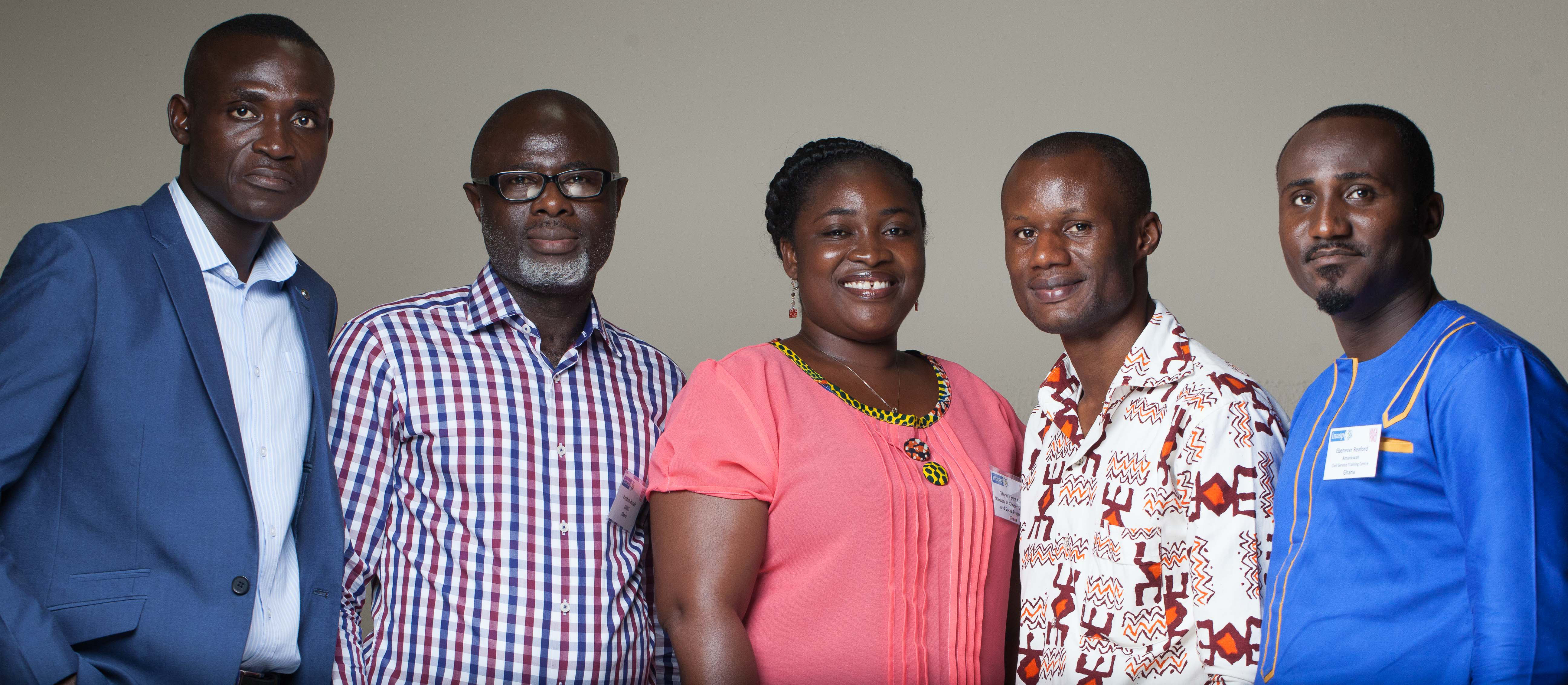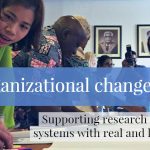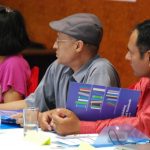
For effective evidence use in policy, go beyond individual skills development
It’s been two years since we published our Evidence-Informed Policy Making Toolkit, and research and practice in the EIPM sector continues to develop rapidly.
Many new perspectives are emerging, from questions about connecting the evidence and innovation agendas to discussions on the role of citizen evidence in decision making. Of particular interest to us is the increasing focus on the organizational capacities, systems and processes that shape evidence use—and the way that this starts to take the EIPM sector closer to the governance sector in moving beyond purely technical approaches to evidence use to consider complex and politically charged processes of institutional reform. We have recently been exploring some of these factors with our partners at Politics & Ideas through pilots of the Context Matters Framework with government agencies in Ghana and Peru.
But despite all these exciting new developments in the sector, the familiar issue of skills still comes up in most discussions at one point or another. What skills do civil servants need in order to find, analyse and communicate quality evidence? And what are the most effective ways to build those skills?
These questions remain relevant and important for many of us, and have also been explored in key learning products such as the EPPI-Centre’s Science of Using Science study, ITAD’s evaluation of the BCURE programme, and Results for All’s Global Landscape Study.
We are often asked to share our experience about skills-building. So what have we learned about skills development for evidence use? And what do we need to keep in mind for the future?
The softer sides of change are just as important as technical skills
With the increasing calls for iterative adaptation and ‘thinking and working politically’, it’s essential to remember that skills for evidence use are not only (or even mainly) technical. This important point is well illustrated in the EIPM skills map produced by the European Commission’s Joint Research Centre. ‘Softer’ skills such as emotional intelligence, storytelling and conflict management are identified alongside more traditionally ‘technical’ skills such as meta-analysis, visual analytics, and evidence gap mapping. One way of surfacing and addressing some of these more tacit areas is through a reflective storytelling approach, as shown by my former colleague on the VakaYiko project, Ajoy Datta in a series of workshops with staff from the Ministry of Youth in Zimbabwe.
Adult learning principles matter
A consensus across all of the major reviews I’ve read is that adult learning principles are fundamental to ensuring the success of training. At INASP we draw on Malcolm Knowles’ five principles. Adult learners must be able to see personal benefit from the training; the training should build on learners’ own experience and provide opportunities for self-direction, taking into account different learning styles; and the learning should be action-oriented and practically applicable. Applying these principles in practice takes detailed planning and participant selection; careful thinking about learning objectives and outcomes (eg is it really skills you want to build? What about knowledge or awareness?); and thoughtful adaptation to contexts. At INASP we are fortunate to have in-house learning specialists who to support us on adult learning and learning design.
Learn about your learning
Individual capacity development approaches can sometimes be seen as astatic ‘bolt-on’ intervention to a larger project—an ‘out of the box’ package that can be applied anywhere. But capacity development is a nuanced, complex and constantly shifting landscape, and at INASP we try to ensure that we keep learning and adapting our approaches. This piece gives a sense of how INASP’s organizational training approaches have evolved through 979 workshops around the world over a 20-year period.
When we were developing and testing our EIPM Toolkit, we made significant changes to the content and delivery as a result of insights shared by partners such as the Ghana Civil Service Training Centre. The final Toolkit materials were a joint effort, drawing on numerous after-action reviews, validation and feedback sessions. And we wouldn’t advise using the Toolkit ‘out of the box’: it’s designed to be adapted to local contexts and to emerging learning.
Training workshops aren’t the only way to develop skills
At INASP we have developed an internal capacity development framework which maps a ‘toolbox’ of interventions that we can use to develop capacity at different levels. A wide range of interventions can support individual skills, from face-to-face or online training to mentoring, pairing schemes, job shadowing and peer learning. You can read about examples of these approaches in action from some of our VakaYiko partners: online training for policymakers in Latin America; job shadowing to improve evidence use in environment policy in Kenya; and mentoring for education policymakers in the Philippines.
Skills are just one component of capacity for EIPM
On to the last but perhaps most important point: capacity development for EIPM is about much more than skills. It’s about organizational capacities, systems and processes like these ones outlined by ODI drawing on work in South Africa and these factors mapped out in the Context Matters Framework. Strengthening civil servants’ skills without addressing the broader issues they face in their work environments means they may not be able to put their new abilities into practice. Likewise, creating organizational systems without paying attention to the individual skills of the people operating within those systems will have limited effect. Skills-building initiatives work best when combined with interventions at organization and network levels.
So, as the EIPM sector grows, and we at INASP move forward with our work on organizational change for evidence use, it’s clear that individual skills will remain part of the discussion, and we are happy to contribute where we can. But we would urge those considering skills-building initiatives to keep an eye on the bigger picture: skills development alone is not enough.
Photo: George Amoah (second from right) pictured with fellow CSTC trainer Ebenezer
Amankwah (far right), EIPM course participant Thywill Eyra Kpe (centre) and
Kirchuffs Atengble (far left) and Ibrahim Inusah (second from left) of GINKS

 Previous Post
Previous Post Next Post
Next Post


